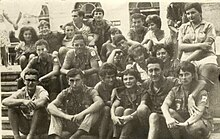
Yugoslavia was a country in Southeast and Central Europe that existed from 1918 to 1992. It came into existence following World War I, under the name of the Kingdom of Serbs, Croats and Slovenes from the merger of the Kingdom of Serbia with the provisional State of Slovenes, Croats and Serbs, and constituted the first union of South Slavic peoples as a sovereign state, following centuries of foreign rule over the region under the Ottoman Empire and the Habsburg monarchy. Peter I of Serbia was its first sovereign. The kingdom gained international recognition on 13 July 1922 at the Conference of Ambassadors in Paris. The official name of the state was changed to Kingdom of Yugoslavia on 3 October 1929.

The Socialist Federal Republic of Yugoslavia, commonly referred to as Socialist Yugoslavia or simply Yugoslavia, was a country in Central and Southeast Europe. It was established in 1945 as the Federal People's Republic of Yugoslavia, following World War II, and lasted until 1992, breaking up as a consequence of the Yugoslav Wars. Spanning an area of 255,804 square kilometres (98,766 sq mi) in the Balkans, Yugoslavia was bordered by the Adriatic Sea and Italy to the west, Austria and Hungary to the north, Bulgaria and Romania to the east, and Albania and Greece to the south. It was a one-party socialist state and federation governed by the League of Communists of Yugoslavia, and had six constituent republics: Bosnia and Herzegovina, Croatia, Macedonia, Montenegro, Serbia, and Slovenia. Within Serbia was the Yugoslav capital city of Belgrade as well as two autonomous Yugoslav provinces: Kosovo and Vojvodina.

The Yugoslav People's Army, also called the Yugoslav National Army, was the military of the Socialist Federal Republic of Yugoslavia and its antecedents from 1945 to 1992.
The economy of the Socialist Federal Republic of Yugoslavia (SFRY) was a unique system of socialist self-management that operated from the end of World War II until the country's dissolution in the 1990s. The Yugoslav economy was characterized by a combination of market mechanisms and state planning, with a focus on worker self-management and a decentralized approach to decision-making. Despite facing numerous challenges, including political instability and external pressures, the Yugoslav economy achieved significant growth and modernization during its existence, with a particularly strong emphasis on education, health care, and social welfare. However, the system ultimately proved unsustainable in the face of the global economic changes of the 1980s and the political tensions that led to the breakup of Yugoslavia in the 1990s. Despite common origins, the Yugoslav economy was significantly different from the economies of the Soviet Union and other Eastern European socialist states, especially after the Yugoslav-Soviet break-up in 1948.
Vladimir "Vlado" Dapčević was a Yugoslav and Montenegrin communist, revolutionary and political leader who fought as a Partisan against Axis occupation troops and forces of the Independent State of Croatia during World War II. He was a political dissident and after the war he opposed the Anti-Soviet policy of Josip Broz Tito, president of Yugoslavia. He spent a total of 24 years in Yugoslav prisons as a political dissident for advocating anti-Titoism and Proletarian internationalism. After the collapse of Yugoslavia in 1990s, he founded the Party of Labour in Serbia.
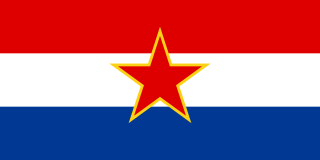
The Socialist Republic of Croatia, commonly abbreviated as SR Croatia and referred to as simply Croatia, was a constituent republic and federated state of the Socialist Federal Republic of Yugoslavia. By its constitution, modern-day Croatia is its direct continuation.

Filip Bajković was the President of the Executive Council of Montenegro from 16 December 1951 to 12 July 1962. From 12 July 1962 to 5 May 1963, he was the President of the People's Assembly of Montenegro.
Punk rock in Yugoslavia was the punk subculture of the former Socialist Federal Republic of Yugoslavia. The most developed scenes across the federation existed in the Socialist Republic of Slovenia, the Adriatic coast of the Socialist Republic of Croatia, the Socialist Autonomous Province of Vojvodina and Belgrade, the capital of both Yugoslavia and the Socialist Republic of Serbia. Some notable acts included: Pankrti, Paraf, Pekinška patka, KUD Idijoti, Niet, Patareni and KBO!.

Vladimir "Senjko" Ćopić was a Yugoslav revolutionary, politician, journalist and, as organizational secretary, the second in command of the Communist Party of Yugoslavia from April 1919 to August 1920.
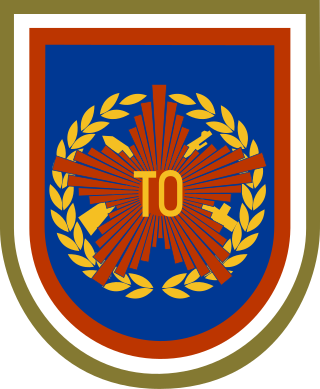
The Territorial Defense[a] was the gendarmerie and military reserve force component of the armed forces of Yugoslavia that was the primary means of organized armed resistance against an enemy under the Constitution of Yugoslavia. Similar to the U.S. National Guard, each of the Yugoslav constituent republics had its own Territorial Defense military formations, to remain separate from the Yugoslav People's Army (JNA), which also maintained its own reserve forces and could take command of Territorial Defense in case of war. This would be done under the command of the Presidency of Yugoslavia as Supreme Commander of Armed Forces through the Minister of Defense, who was the highest military rank that could command both Yugoslav People's Army and Territorial Defense simultaneously under the constitution. While the President of Yugoslavia was in function he was under constitution supreme commander of armed forces, including the JNA and TO, and he could also pass duties as supreme commander to minister of defense.

The Socialist Alliance of Working People of Yugoslavia (SSRNJ), known before 1953 as the People's Front of Yugoslavia (NFJ), was the largest and most influential mass organization in SFR Yugoslavia from August 1945 through 1990. It succeeded the Unitary National Liberation Front, which gathered and politically backed anti-fascist layers of society throughout Yugoslavia since 1934. By 1990, SSRNJ's membership was thirteen million individuals, including most of the adult population of the country. Together with the League of Communists of Serbia, it merged in July 1990 to form the Socialist Party of Serbia.

Đurađ "Đuro" Pucar "Stari" was a Yugoslav and Bosnian Serb politician.
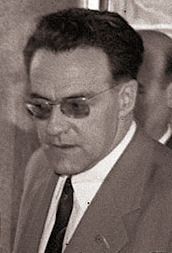
Hasan Brkić, often referred to as Aco, was a Yugoslav and Bosnian communist politician and a partisan. He was also the recipient of People's Hero of Yugoslavia. From 1963 to 1965 he was President of the Executive Council of the Socialist Republic of Bosnia and Herzegovina.

The 1974 Yugoslav Constitution was the fourth and final constitution of the Socialist Federal Republic of Yugoslavia. It came into effect on 21 February 1974.

Ratomir "Rato" Dugonjić was a Yugoslav Partisan fighter in the antifascist liberation struggle of the people of Yugoslavia, Minister in the Communist Government, Ambassador with the Non-Aligned Movement, president of the Socialist Republic of Bosnia and Herzegovina and the Vice president of the Socialist Federal Republic of Yugoslavia. Dugonjić was a member of the Politburo Central Committee, League of Communists of Bosnia and Herzegovina and a member of the Central Committee of the League of Communists of Yugoslavia of the Fifth to Eighth Congress and member of the Presidium of the Central Committee. He was a member of the Presidency of Yugoslavia and Federation Council.

The Militia of SFR Yugoslavia was a law enforcement agency of the Socialist Federal Republic of Yugoslavia from 1944 to 1992. The Militia was subordinated to the Federal Secretariat of Internal Affairs.
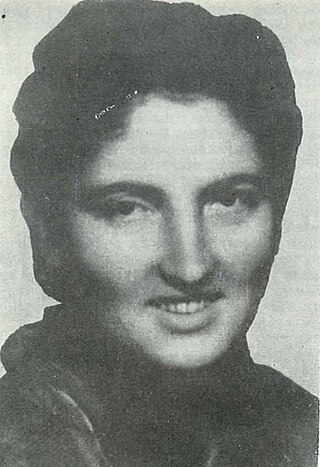
Božidarka "Kika" Damjanović-Marković was a Yugoslav Partisan commander as a participant in the Second World War in Yugoslavia.
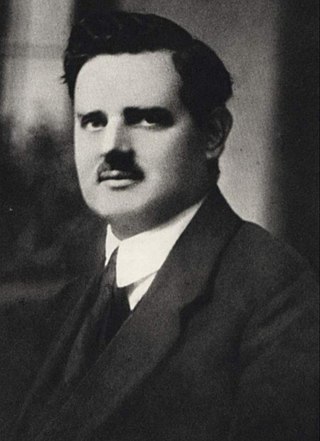
Filip Filipović was a Serbian mathematician, one of the founders of the Communist Party of Yugoslavia and its first secretary. He spent most of his last ten years in the Soviet Union, where he was executed during the Great Purge.
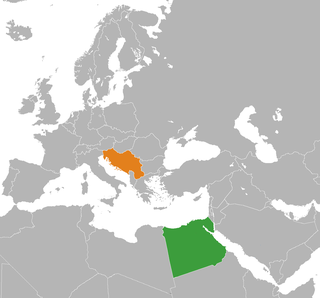
Egypt–Yugoslavia relations were historical foreign relations between Egypt and now break-up Yugoslavia. Both countries were founding members and prominent participants of the Non-Aligned Movement. While initially marginal, relations between the two Mediterranean countries developed significantly in the aftermath of the Soviet-Yugoslav split of 1948 and the Egyptian revolution of 1952. Belgrade hosted the Non-Aligned movement's first conference for which preparatory meeting took place in Cairo, while Cairo hosted the second conference. While critical of certain aspects of the Camp David Accords Yugoslavia remained major advocate for Egyptian realist approach within the movement, and strongly opposed harsh criticism of Cairo or proposals which questioned country's place within the movement.

Turkey–Yugoslavia relations were historical foreign relations between Turkey and now broken up Yugoslavia.
